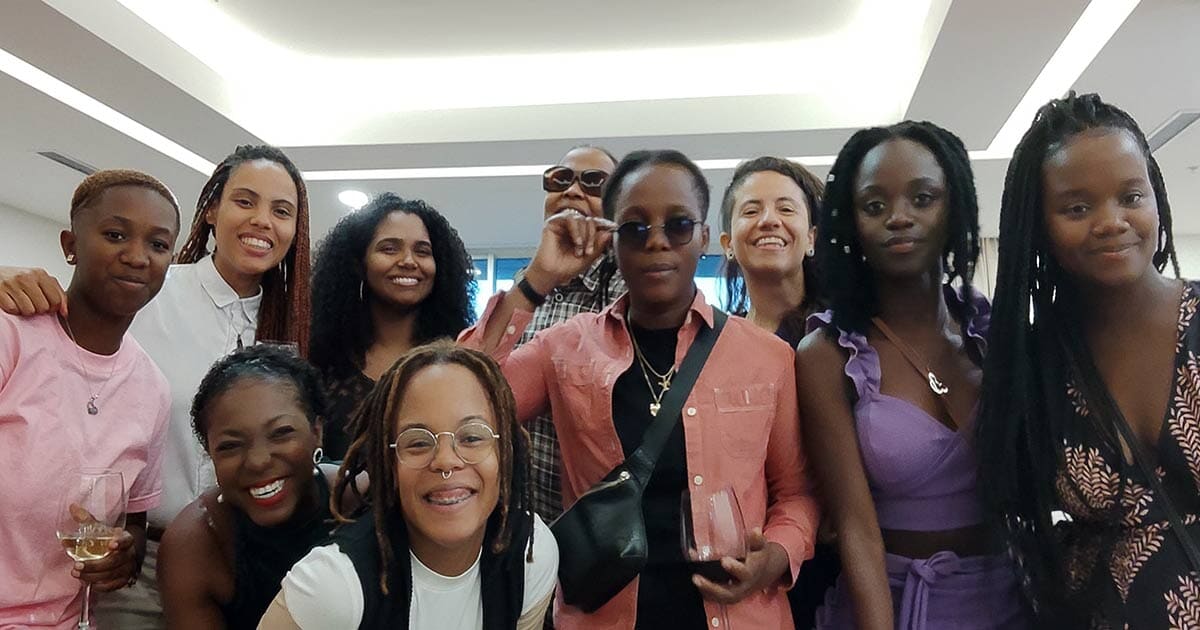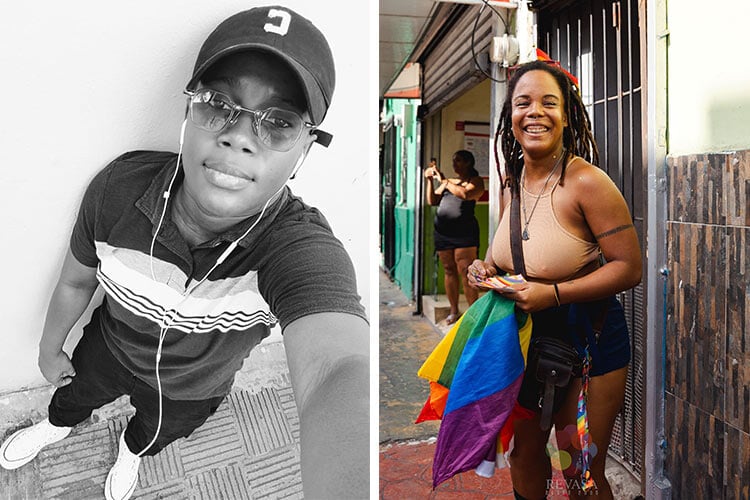In the Dominican Republic, “las pájaras” is a pejorative slang for women attracted to other women. However, in the heart of Santo Domingo, the queer young women of Junte Pajaril are reclaiming it.
“When someone asks me, ‘what are you?’ I don’t say ‘lesbian’ or ‘bisexual.’ I say ‘I’m a pájara,'” says Ferdelis Fabián, one of the group’s members. “It’s what resonates with my spirit, my heart, and my soul. We all feel that way.”
Junte Pajaril is an initiative of AJWS grantee, Conexión Intercultural por el Bienestar y la Autonomía (La CEIBA), a collective of queer Afro-descendant Dominican women and migrants. Founded in 2019, La CEIBA works to promote sexual autonomy and reproductive justice.
Over the years, as La CEIBA organized conferences, workshops, and community actions, it became apparent that the same faces showed up time and again. And while human rights work was important, Fernanda Berihuete, a project coordinator at La CEIBA, felt something was missing.
“For many years, I was deeply focused on our rights. But whenever I got tired and needed a break, I would ask myself, ‘Between now and when we win the rights we’re fighting for, what do I do?'” she said. “I knew I wasn’t the only one.”

That desire sparked the idea for Junte Pajaril. The group consists of more than 20 young women of diverse backgrounds, including Dominicans, Haitians, Mexicans and the diaspora from Puerto Rico, the US and Germany. They meet regularly though the location, shared through lively WhatsApp exchanges, is constantly changing.
They discuss their private lives, lesbian relationships, polyamorous relationships, self-pleasure, eroticism and more. They’ve hosted a mental health workshop, pool parties, even a lesbian visibility ride.
“It’s become a space where, as women, we can just gather,” Ferdelis said. “We don’t have to be there to demand rights.”
Like many in the group, Ferdelis grew up in a conservative, Catholic community in the Dominican countryside.
“There are certain parameters you’re expected to conform to,” she said. “You have to wear dresses, be feminine, wear your hair straight. You can’t walk around holding hands with another girl. If you say you’re a lesbian, they could take you somewhere for a ‘sexual treatment’ because they think that’s what you need.”
Mayotte Medor, who emigrated from Haiti, tells a similar story. She grew up in a Catholic family and feared sharing her gender identity. A cousin taunted her for “dressing like a man.” Neighbors looked down on her. One day, a relative discovered her relationship with another girl and beat her so brutally, she said, “I can still feel it to this day.”
“I was the black sheep of the family,” she continued. “It was one of my motivations for moving to the Dominican Republic.”
Mayotte first went to La CEIBA to take one of their self-defense workshops but discovered much more.

“These women have become my second family,” she said. “My life here as a migrant has been much easier because of them. I am not afraid of sharing who I am, of expressing who I am. They have allowed me to be myself, a Haitian, Black dyke!”
Mayotte recounted one powerful moment when the group went out dancing at a lesbian disco. She’d requested a Creole song, but the club manager barred the DJ from playing it.
“I ended up leaving – and everyone left with me in solidarity. We left the place mostly empty,” she laughed. “It was a great moment that I will always remember.”
These shared experiences have been a source of strength for Fernanda as well. She recalled how, through the group, she’d reconnected with a friend from her hometown and learned the friend was a lesbian too.
“We knew each other for years but never truly knew each other. That was not a conversation we could have back home,” she said. “Now, to have that freedom, to hang out with one another, to be able to have those moments of introspection about who we are, that deeply moves me.”
As she looks to the future, Fernanda hopes everyone will view Junte Pajaril as a place of true belonging.
For Ferdelis, it is exactly that.
“I feel so deeply loved by this group that I sometimes wonder what I would have done without them,” she said. “I feel protected and cared for. I am not contained. I am free.”
